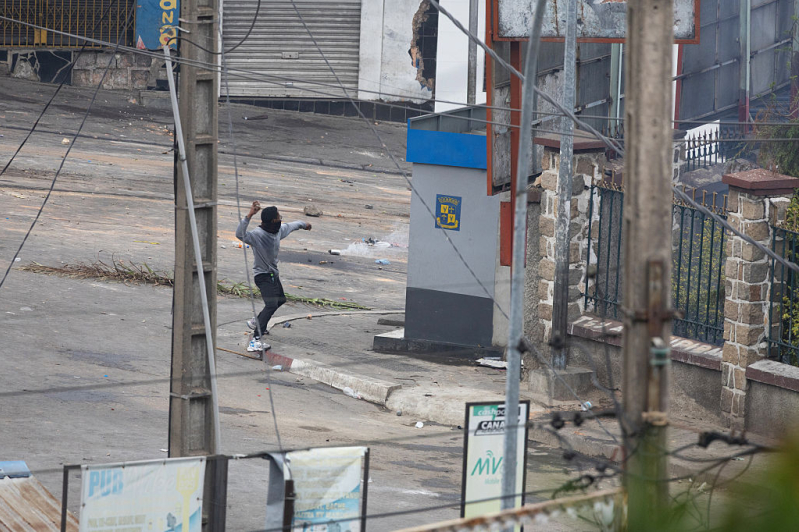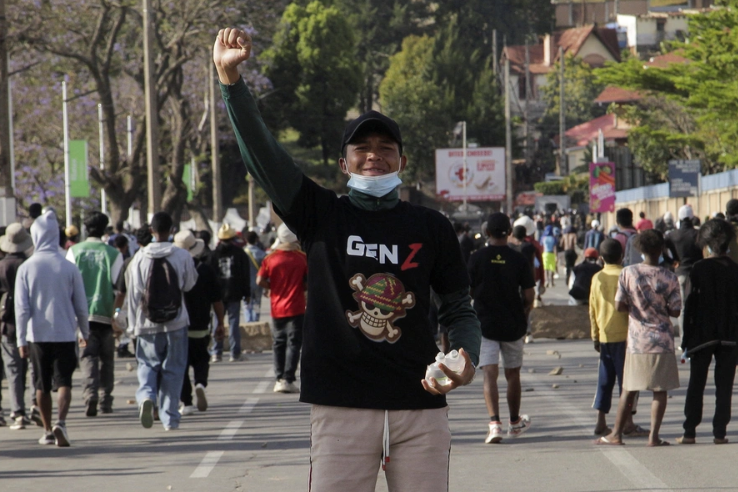
Following weeks of youth-led protests in Madagascar that have led to the death of at least 22 people and destruction of property worth millions of dollars, church leaders in the southwestern Island nation off the coast of the Indian Ocean have called for "peace, protection of life and the common good."
The current political crisis is considered the country’s most serious unrest in years. The protests were primarily sparked by persistent electricity cuts and water shortages especially in the capital, Antananarivo. However, the demands quickly broadened to include calls for lower living costs, better access to higher education, and investigations into alleged governmental corruption. Similar Gen Z-led protests have been witnessed in Kenya as well as other countries in Africa and globally.
Rev. Dinah Ratsimbajaona, the president of the Madagascar Evangelical National Alliance told Christian Daily International that the situation remains "quite uncertain and unstable" following weeks of unrest that began in late September. Ratsimbajaona highlighted the struggle faced by ordinary citizens, noting that "most shops and banks are closed, and people are struggling to get their daily necessities."
He also mentioned that some churches have recently faced damage. Amidst the volatility, he reaffirmed the Church in Madagascar remains focused on "praying, serving where we can, and urging restraint from all sides" and avoided endorsing any specific political faction.
"To date, I’m not aware of a single unified Church endorsement of either political side. We truly appreciate your prayers for peace, for the government to care for the people, and for stability to return," Ratsimbajaona urged.
The Council of Christian Churches in Madagascar (FFKM), which includes the Catholic, Anglican, Protestant Reformed, and Lutheran churches, issued a statement on Sept. 26, shortly after the protests began. The group called for an immediate cessation of all violence and proposed a structured path toward resolution centered on "prayer, justice, dialogue, and reconciliation."
Further demonstrating solidarity, Catholic bishops across the Indian Ocean region expressed spiritual support.
On Sept. 29, the Malagasy Episcopal Church (FEEM), led by the Right Rev. Samoela Jaona Ranarivelo, issued a statement calling for peace and stability. As the Church stands as a "Shepherd and Prophet... at the side of the Malagasy people who are oppressed and suffering," the statement extended condolences to those who lost loved ones and offered comfort to those whose property was destroyed.
Crucially, the FEEM called upon security forces "to refrain from using violence against young people and others who express their opinion, since this is a fundamental right." It also condemned the killings, the use of force, and the looting taking place. The church also demanded the unconditional release of those arrested solely for expressing their views.
Acknowledging the deep societal division, the FEEM called upon the Malagasy people to maintain unity, preserve peace, and prioritize the common good of the nation, urging them to seek peace and justice while refusing to fall into "the traps set by the enemies of the nation." It stressed that "prayer changes things" and called on all Christians across the island to pray for the nation, interceding, repenting, and asking forgiveness for their land.
According to the United Nations, the demonstrations have seen at least 22 fatalities and over 100 injuries. In response to the growing unrest, President Andry Rajoelina, 51, dissolved his government and appointed an army general as the new prime minister.
Rajoelina invited various groups to dialogue and publicly promised to resign within one year if the persistent power cuts in the capital are not resolved. However, Gen Z leaders have rejected the offer for talks, describing it as a "sham dialogue" and insisting that the president resign.
Historically, religious leaders have often acted as respected mediators and peacemakers during periods of conflict. For example, the Christian Council of Churches (FFKM) successfully mediated high-level negotiations during the 1991 political episode, a period of intense pro-democracy protests and general strikes against then-President Didier Ratsiraka's authoritarian rule.
With tensions remaining high amid the current protests, Rev. Ratsimbajaona emphasized the nation's need for continued prayer for "wisdom, just solutions, and peace."
News Source : https://www.christiandaily.com/news/madagascar-church-leaders-call-for-peace-and-dialogue-amid-ongoing-gen-z-protests-against-government
 Your post is being uploaded. Please don't close or refresh the page.
Your post is being uploaded. Please don't close or refresh the page.





